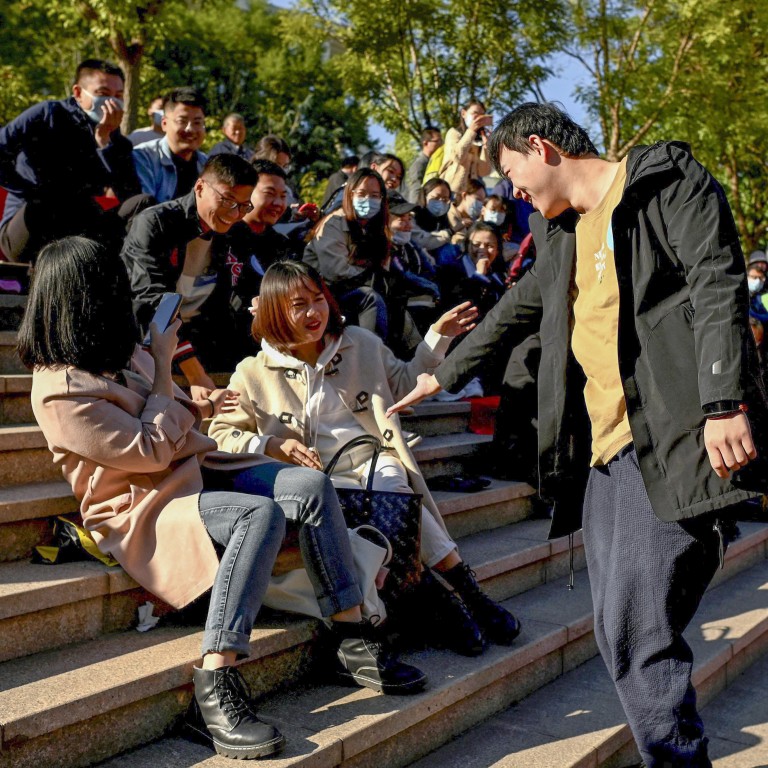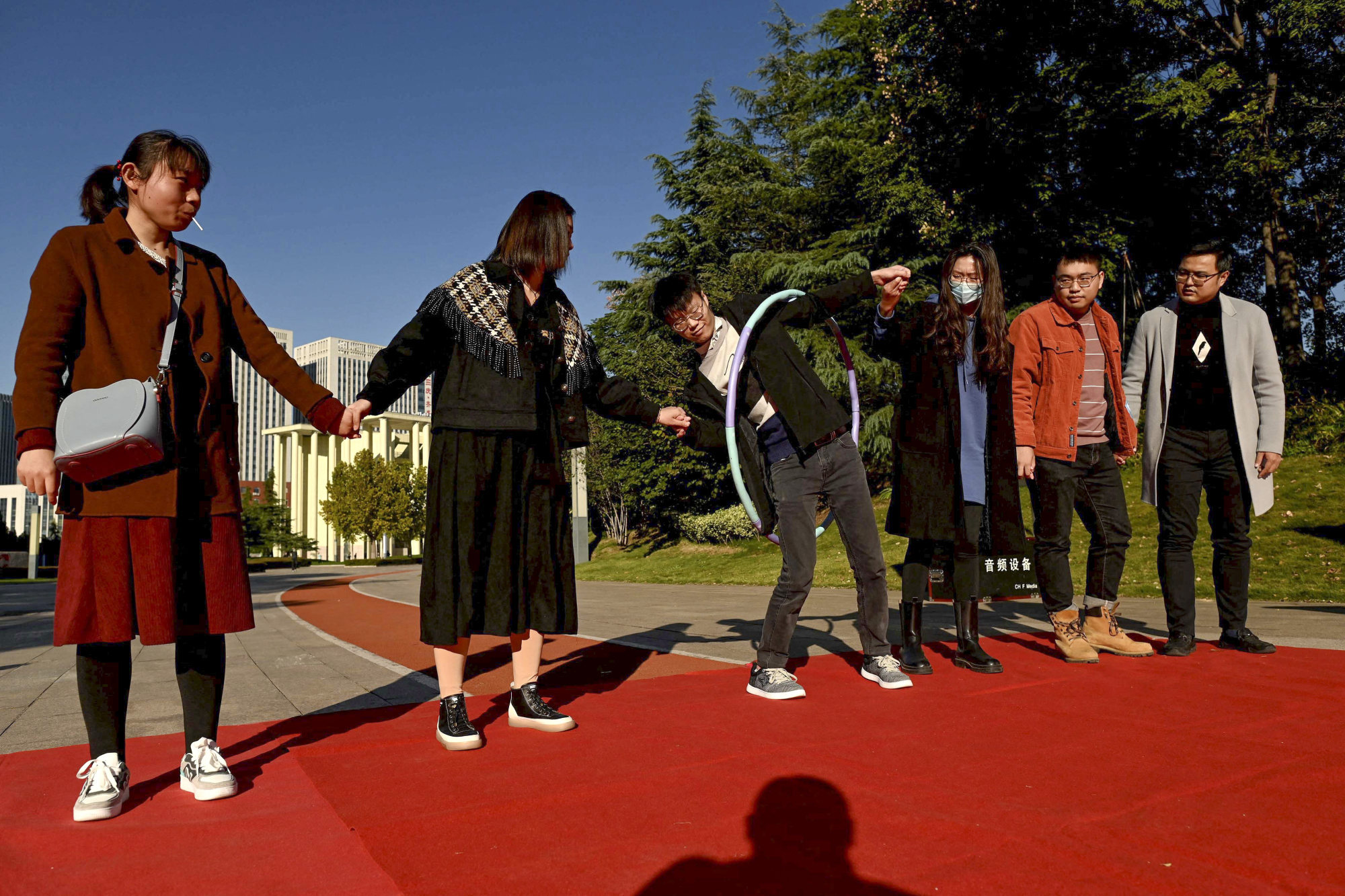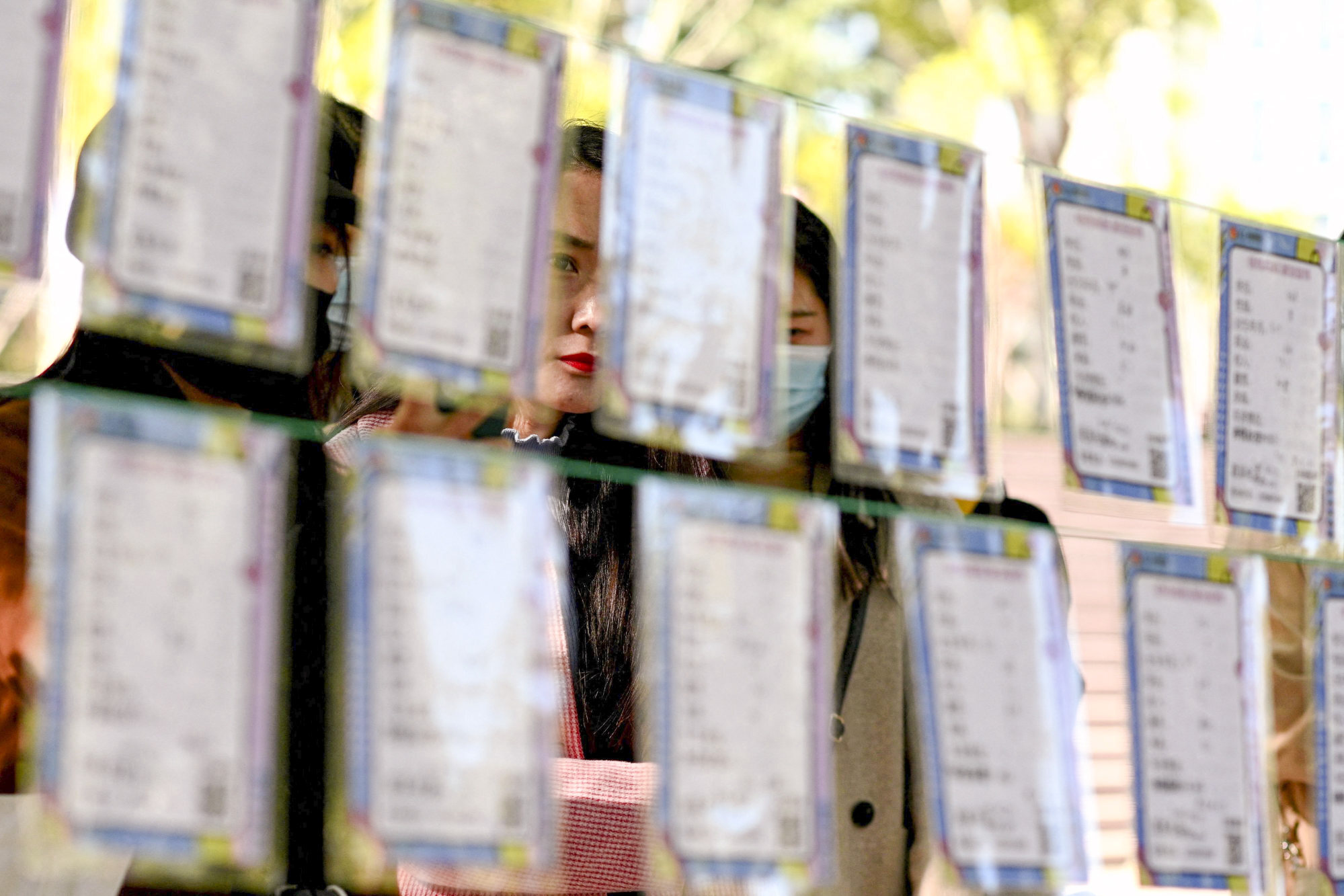
China’s singles put their hearts in the hands of the Communist Party
- Local youth branches are acting as matchmakers to help single people struggling to find love in a country where men vastly outnumber women
- In rural areas the imbalance can be ‘beyond 10-to-1’ leading to soaring betrothal gifts as families battle for brides
Zhang Shaoge, 30, put his heart in the hands of the party when he attended an event organised by officials from the local youth branch. “It’s about time to date and get married at this age,” he said.
Zhang, a city-dweller, said he was also under mounting pressure from his family to settle down. “There isn’t anyone suitable around me at the moment, so I wanted to expand my social circle. I don’t come across many women because of my job.”
He is not alone. Party youth branches are increasingly organising events and social introductions for singles, as the world’s most populous nation deals with a gender imbalance amounting to tens of millions more men than women.
Marriage rates have slumped across the country. In 2020, 8.14 million couples registered to marry compared with 13.47 million in 2013, according to China’s National Bureau of Statistics (NBS).
Meanwhile, birth rates plunged to 7.52 births per 1,000 people last year, according to NBS data – the lowest figure since 1949 when communist China was founded.
The gender imbalance for the generation born between 1980 and 2016, when the rules were relaxed, is particularly stark in rural areas, adding to a shortage of potential brides.

More than 100 singles attended a party-backed event in Jinan in the eastern province of Shandong. Held in a city park, written profiles of guests detailing ages, fields of work and income were strung up between trees.
A master of ceremonies helped to introduce ice-breaking team games as pop music played in the background.
“I feel more secure [with official events],” said 26-year-old engineer Li Changle. “There are many matchmaking websites, but if you fill in your information, you wind up receiving harassing calls.”
Another participant Xu Feng, 40, concedes he signed up as his family had been “hurrying” him to get married. “The older I get, the more pressure there is.”

In the eastern Anhui province, officials have turned to technology to connect young people, launching a mini programme on China’s ubiquitous social media platform WeChat. Registered members can view information, such as a person’s surname, height, company and income.
“If you like someone, you can add them as a friend,” said Li Heng, Anhui’s Communist Youth League representative. There were also “organisational advantages” to the branch’s involvement, he added. Its notices can reach singles across major companies and industries.
According to Leta Hong Fincher, author of Betraying Big Brother: the Feminist Awakening in China, the party’s youth branch has taken on a “key role in sponsoring mass matchmaking events”.
“It’s not just the raw birth rate that the government is concerned about,” she said, adding that authorities were targeting college-educated women to encourage them into the “politically stabilising institution” of marriage to ensure a “higher quality population”.
China’s one-child policy and the millions of ‘missing girls’
Beijing is unwinding decades of strict family planning controls – announcing last May that couples can have three children – and rolling out cooling-off periods for divorce to slow separations.
But rural matchmakers said the gender imbalance, especially stark in the countryside, meant love and marriage may be out of reach for some.
The higher proportion of men was “sometimes beyond a 10-to-one ratio”, according to Quan Baoyong, a matchmaker in the central province of Henan.
Officials are prioritising the issue but campaigns can backfire. Last year, a county’s proposal to urge rural women to stay in their hometowns and marry local bachelors sparked a firestorm of online criticism. Authorities had to clarify they were not trying to force people to stay.
‘Operation bed warming’: plan to pressure women to marry bachelors backfires
“If I were in my 20s now … I wouldn’t be looking for a wife,” said delivery driver Zhao Liang, who noted the process was “very materialistic now” compared to when he was married.
Costly betrothal gifts – also known as bride prices – and other “unhealthy” marriage customs are also being targeted by the party.
In some Henan villages, the gender imbalance has seen families battling for suitable women, with the bride price – given by the bridegroom’s family – reaching as high as 160,000 yuan (US$25,034), according to matchmakers.
Some officials have begun to cap the figure at 66,000 yuan to make marriage more affordable in rural areas.
But, even with no betrothal gift, “people want you to have a house and a car”, Zhao said. “That’s at least 500,000 to 600,000 yuan. For a rural family, it’s not easy.”

.png?itok=arIb17P0)